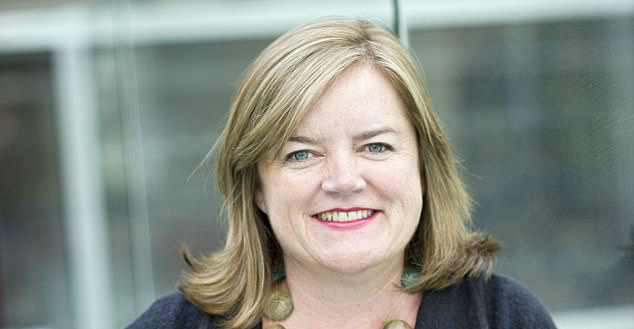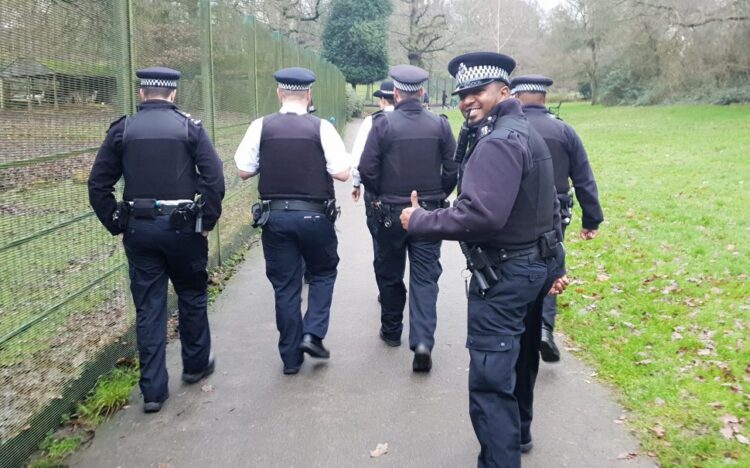By Gavin Mackintosh-
Women and children have been failed by the institutionally racist, misogynistic and homophobic force, a damning review says.
The report by Baroness Casey details a catalogue of failings that predispose women and children to abuse by unsavoury police officers.
Her damning report which begins with a tribute to Sarah Everard’s mother and a quote from her victim impact statement highlights the betrayal of trust by a force that has year after year continued to display serious levels of homophobia and racism.
The report reveals that black officers are 81% more likely to be in the misconduct system than white colleagues, adding that “attempts to improve diversity in the Met are not succeeding,” Baroness Casey says in the report. “The Met’s response to discrimination is wholly unsatisfactory.
“Deep in its culture it is uncomfortable talking about racism, misogyny, homophobia and other forms of discrimination.”
Baroness Casey said policing by consent – the idea ordinary people trust the police to act honourably and be held accountable, has been broken.

Baroness Louise Casey Image:kcl.ac.uk
Her report added that leadership teams at the top of the Met have been in denial for decades, and there has been a systemic failure to root out discriminatory and bullying behaviour. her 363-page report condemns the force as institutionally racist, misogynist and homophobic. Staff routinely experience sexism, it adds.
There are racist officers and staff, and a “deep-seated homophobia” in the organisation.
She said a “boys’ club” culture is rife and the force could be dismantled if it does not improve.
The report found that violence against women and girls has not been taken as seriously as other forms of violence.
The review made 16 recommendations and said the changes needed to be made by the Met, the Mayor’s Office for Policing and Crime, and the Home Office to “create a radically improved new London Metropolitan Police Service”
However, both The Mayor’s Office and The Home Office have been weak and ineffective in addressing the problems in the Metropolitan Police. Some efforts have been made by The Mayor’s Office to address racism and homophobia in the Met, but it hasn’t been enough.
Weak Home Office
The Home Office has been to weak.
The Eye Of Media.Com has engaged The Home Office behind the scenes at least four times in the past six months, the most recent being last Friday, (17th March) both by phone and mail, inquiring about what measures it was taking to address the ongoing reports of racism and homophobia in the force, and pushing for accountability on the issue following a confrontation with one of their press team over the issue late last year.
A written report to The Home Office’s Press office Head, Craig Saunders, and its Director of Communications Robert Hall was made as part of a documented process to observe their response.
The latest damning report revealed that the Metropolitan Police failed to protect the public from police officers who abuse women, organisational changes have put women and children at greater risk, and female officers and staff routinely experience sexism, according to the report.
It also found that there are racist officers and staff in the force and a “deep-seated homophobia” exists in the organisation, it found.
“Despite the Met saying violence against women and girls is a priority, it has been treated differently from ‘serious violence’.
“In practice this has meant it has not been taken as seriously in terms of resourcing and prioritisation.”
Officers are relying on “overstuffed, dilapidated or broken fridges and freezers” instead of fast-track forensic services, the report said.
“The de-prioritisation and de-specialisation of public protection has put women and children at greater risk than necessary.
“Instead of access to fast-track forensic services, officers have to contend with overstuffed, dilapidated or broken fridges and freezers containing evidence including the rape kits of victims, and endure long waits for test results.”
It found that the force’s child protection service continues to have “major inadequacies” despite a watchdog issuing the most severely critical report in its history on the issue in 2016.
“The Met’s VAWG (violence against women and girls) strategy rings hollow since its claim to be prioritising serious violence has really not included the crimes that most affect women and girls,” the report added.
“Those investigating domestic abuse are also under considerable pressures, with unmanageable caseloads and poor support for victims. This has increased disconnection from Londoners.”
The report concluded there are “systemic and fundamental problems in how the Met is run” and that the problem with the force is not its size but “inadequate management”.
“The Met is run as a set of disconnected and competing moving parts, lacking clear systems, goals or strategies,” Baroness Casey’s report said.
“It runs on a series of uncoordinated and short-lived initiatives, long on activity but short on action.”
The Met’s processes “do not effectively root out bad officers, help to tackle mediocre officers, or truly support and develop good officers,” and there are clear signs of high stress among the workforce.
“In the absence of vigilance towards those who intend to abuse the office of constable, predatory and unacceptable behaviour has been allowed to flourish,” said the report.
“There are too many places for people to hide. The integrity of the organisation remains vulnerable to threat.”
The report called for a “complete overhaul” of the Met and a “new approach to restore public trust and confidence”.
Systemic Failures And Dropped Rape Cases
Her year-long review condemns systemic failures, painting a picture of a force where rape cases were dropped because freezers containing key evidence broke.
The Met’s Commissioner Sir Mark Rowley has apologised to Londoners.
He said: “It is ghastly. You sit down and read that report and it generates a whole series of emotions. It generates anger, frustration, embarrassment.”
Baroness Casey was appointed to review the force’s culture and standards after the abduction, rape and murder of Sarah Everard by serving police officer Wayne Couzens, in 2021.
During the course of her review, another Met officer, David Carrick, was convicted of a series of rapes, sexual offences and torture of women.
The report begins with a tribute to Sarah Everard’s mother and a quote from her victim impact statement, given in court. It says “those crimes and those betrayals of trust” led to this review.
Black officers are 81% more likely to be in the misconduct system than white colleagues, the report adds.
“Attempts to improve diversity in the Met are not succeeding,” Baroness Casey says in the report. “The Met’s response to discrimination is wholly unsatisfactory.
“Deep in its culture it is uncomfortable talking about racism, misogyny, homophobia and other forms of discrimination.”
Initiation Rituals And Sex Toys
Discrimination towards female colleagues; bags of urine being thrown at cars; male officers flicking each other’s genitals; and sex toys being placed in coffee mugs
How a review heard about initiation rituals, including people being urinated on in the shower
Almost one in five of Met employees surveyed had personally experienced homophobia
Baroness Casey says she accepted the Met had been “disfigured” by what she described as a decade of austerity and funding cuts.
Pressure on the Crown Prosecution Service (CPS), on courts and an expanding London population are also citied as “significant challenges” for the Met.
But she says she felt not enough had changed since the 1999 Macpherson report, published after the murder of black teenager Stephen Lawrence, which labelled the Met “institutionally racist”.
“That’s not on Cressida Dick,” Baroness Casey told reporters – acknowledging Sir Mark’s predecessor as the force’s commissioner, who resigned last year.
“That’s on every commissioner and a lot of politicians. It is rot when you treat Londoners in a racist fashion, that goes over a long period of time,” she wrote.
In total, the review made 16 recommendations and said changes were needed to “create a radically improved new London Metropolitan Police Service”.
Baroness Casey said the scale of required reforms were on a par with the transformation of the Royal Ulster Constabulary, into the PSNI, in 2001.
She said the specialist Parliamentary Protection Diplomatic Command department – the team Couzens had been a member of – should be disbanded in its current forms, and firearms officers re-vetted.
The report said a dedicated women’s protection service needed to be set up, and that there should be a fundamental reset of stop and search in London.
Baroness Casey concluded: “If sufficient progress is not being made at the points of further review, more radical structural options – such as dividing up the Met into national, specialist and London responsibilities – should be considered.”
Failures Of Cultures And Leadership
Home Secretary Suella Braverman said it was “clear that there have been serious failures of culture and leadership in the Metropolitan Police”. She says Sir Mark Rowley had been working “to restore confidence in policing in London”.
Sir Mark said he felt a level of pride that his officers spoke out: “It is our men and women, who care about policing in London, who have given most of the evidence of that report to Baroness Casey, which is testament to their commitment.”
He added: “To be part of an organisation that has let individuals down so badly is deeply upsetting. And that’s where part of my own motivation comes from.
“Because we have to right this wrong. We have to deal with these cultural problems. And the vast majority of my colleagues are up for this.”




